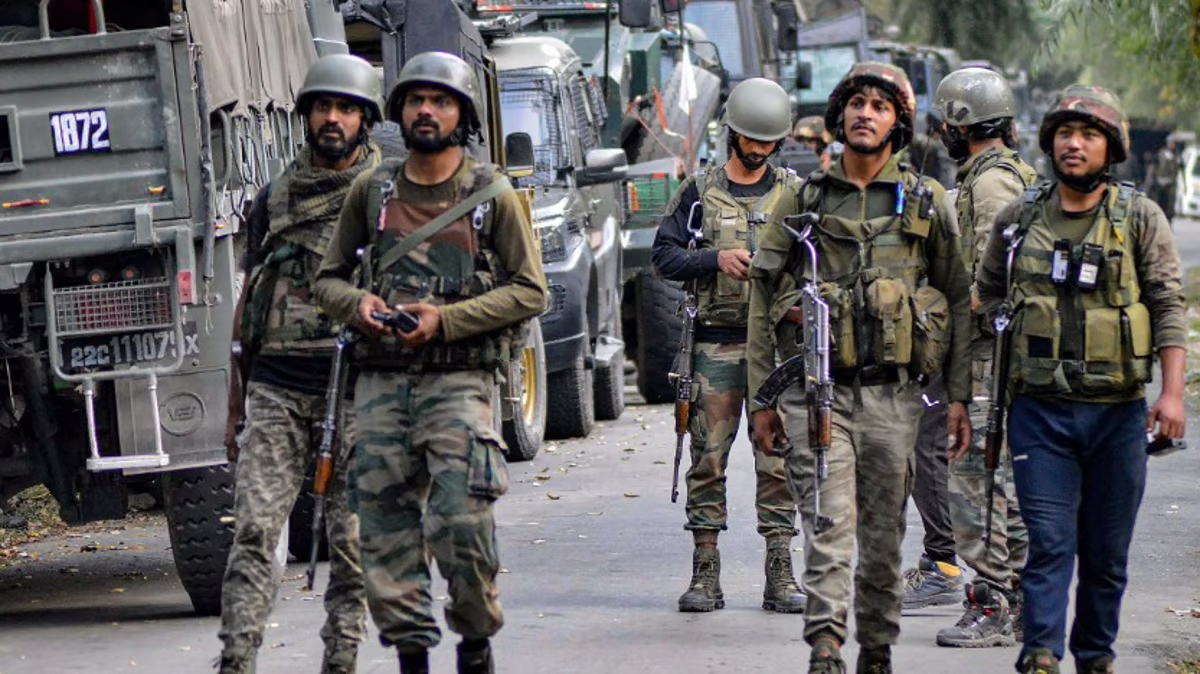India faces terror threat from various extremist groups, including those linked to the Islamic State (ISIL) and Al-Qaeda (AQ). These groups are especially active in and around the Jammu and Kashmir region, either directly or through proxies and affiliates.
India has long grappled with terrorism, but the current threats from ISIL and AQ affiliates have added a complex layer to the already volatile situation. The Financial Action Task Force (FATF), in its latest report, outlined the scope of these threats, providing an analysis of India’s challenges and the measures it has taken to combat them.
Terrorism Threats in Jammu and Kashmir
According to the FATF Mutual Evaluation Report, India faces terror threat from extremist groups associated with ISIL or AQ, particularly in Jammu and Kashmir. These threats have been categorized into six different theaters, one of which is this northern region.
The area has been a flashpoint for separatist movements and insurgencies for decades, and the involvement of foreign-linked terrorist groups has only intensified the situation. The report highlights that both ISIL and AQ-affiliated groups operate in Jammu and Kashmir either directly or through proxies, further complicating the region’s security dynamics.
For years, Jammu and Kashmir has been a battleground for insurgent activities, but now, with the rise of ISIL and AQ-linked groups, India faces terror threat from entities that seek to destabilize the region further.
The FATF notes that these extremist groups not only engage in violent acts but also receive support through proxy networks that are difficult to trace, making it challenging for Indian authorities to curb their activities.
Terror Threats from Northeast Insurgencies and Left-Wing Extremism
In addition to Jammu and Kashmir, India faces terror threat from several other regions, including the Northeast and the North. The FATF report points out that regional insurgencies in these areas also contribute to the nation’s terrorism concerns.
The Northeast, in particular, has been the site of various separatist and insurgent movements seeking greater autonomy or independence from the central government. These movements, while distinct from the ISIL or AQ-linked groups in Jammu and Kashmir, add another dimension to the terrorism threats India is facing.
Furthermore, the FATF report highlights left-wing extremist groups, commonly known as Maoists, who are active in certain parts of the country and are seeking to overthrow the government.
These groups, although not aligned with ISIL or AQ, are a significant part of India’s internal security challenges. The presence of multiple, disparate terrorist threats, both domestic and foreign-linked, underscores the complexity of the security landscape in India.
Money Laundering and Terrorist Financing
The FATF also noted that India faces terror threat exacerbated by money laundering activities that fund these extremist groups. As per the report, India’s main sources of money laundering come from illegal activities committed within the country.
These funds may be laundered domestically or abroad and then reintegrated into the Indian economy. The link between money laundering and terrorism is a crucial issue, as these illicit financial activities enable extremist groups to sustain their operations.

The FATF report further emphasized that terrorist financing risks are closely tied to terrorism risks. Funds or other assets used to support terrorism are generally constrained to India or its neighboring countries, creating a regional challenge for law enforcement and financial institutions. India faces terror threat from multiple fronts, and effective financial regulation is critical to disrupting the flow of funds to these extremist groups.
Efforts to Combat Terrorism and Financial Crimes
Despite the challenges, the FATF recognized India’s efforts in combating terrorism and money laundering. The country has made substantial progress in complying with FATF standards, particularly in terms of technical measures.
However, the report also called for significant improvements in areas such as risk-based measures to protect non-profit organizations (NPOs), as these entities can sometimes be exploited by terrorist groups for funding.
India faces terror threat that is magnified by systemic issues such as inadequate prosecution and a lack of risk-based measures to deal with domestic politically exposed persons (PEPs).
Moreover, the supervision of designated non-financial businesses and professions (DNFBPs) requires improvement to prevent financial crimes. The FATF report suggests that better oversight in these areas could significantly bolster India’s ability to combat terrorism financing.
Gaps in Addressing Human Trafficking and Migrant Smuggling
One area where the FATF report pointed out shortcomings was India’s understanding of risks related to money laundering and terrorist financing linked to human trafficking and migrant smuggling.
India faces terror threat not only from extremist groups but also from transnational crimes that fuel terrorism. The illegal trafficking of humans and smuggling of migrants generate vast amounts of illicit funds, which can then be used to finance terrorism. Addressing these gaps is critical for India to strengthen its overall anti-terrorism and anti-money laundering framework.
The FATF’s recommendations highlight the need for India to better understand these emerging risks and take more targeted actions to combat them. Enhancing cooperation between law enforcement, financial institutions, and international partners is key to addressing the complex web of terrorism financing that India faces today.
India faces terror threat from a broad spectrum of extremist groups, regional insurgencies, and left-wing extremists. The involvement of ISIL and AQ-linked groups in Jammu and Kashmir, in particular, has added a new layer of complexity to the country’s security challenges.
The FATF report provides a detailed analysis of these threats and offers recommendations for strengthening India’s anti-terrorism and anti-money laundering efforts.
While India has made progress in complying with international standards, there is still significant work to be done, especially in terms of improving financial regulations, prosecuting terrorism-related crimes, and addressing emerging risks like human trafficking and migrant smuggling.
To effectively combat terrorism, India must continue to refine its strategies and work collaboratively with global partners to address the evolving nature of these threats.

